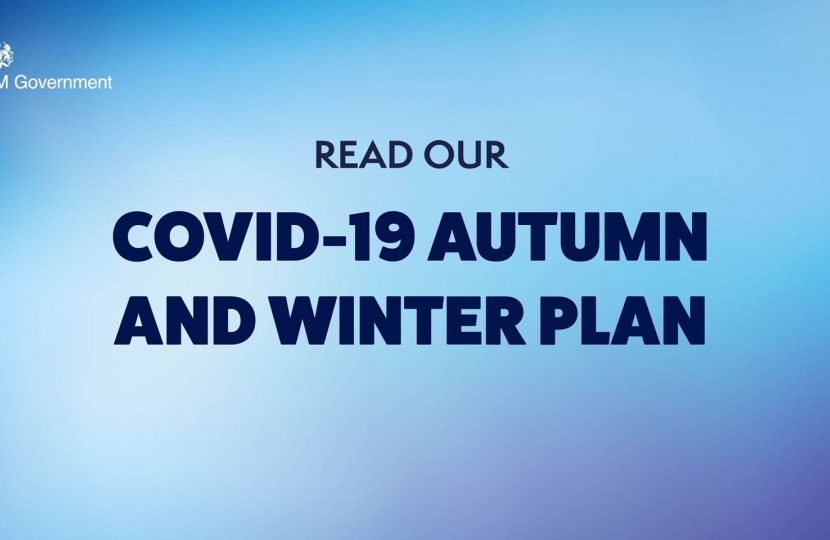
This article was written by Damian and published in this week's Petersfield Post and Herald editions:
"As we head into autumn and prepare for winter, we are beginning a new phase in our response to covid, despite having more cases than we did this time last year.
The extraordinary progress we have made in not only developing but also rolling out vaccines means that much more of normal life can continue, as we start to live with the virus in a way that hopefully avoids the need for lockdowns or significant restrictions.
There is no doubt that the Delta variant is particularly challenging – but data continues to show that the link between cases, hospitalisations and deaths has weakened significantly, with the number of hospital admissions remaining relatively stable.
Ensuring the NHS can cope is critical, and that is why the priority is to maximise the take up of the vaccines among those who are eligible, offer boosters to those who received jabs in phase 1 (priority groups 1-9) and offer a first dose to those aged 12 to 15.
Here in Hampshire, more than 80 per cent of those who are eligible have had both doses, but that rate falls to just 56 per cent for those aged 18 to 24, and 60 per cent for the 25-29 age group, so there is still a job to do in reaching those who are unvaccinated.
And with the prospect of more flu cases this winter adding further pressure on health services, the government recommends as many people as possible receive a flu vaccine, and has once again extended eligibility to include secondary school children as well as those aged 50 to 64.
The use of antivirals and disease modifying therapeutics is also key. Several treatments have already been approved for use and and the UK’s Antiviral Taskforce is leading the search for new treatments that can disrupt how the virus replicates in the body to help reduce the number of people needing care in hospital.
But identifying and isolating positive cases is also vital, and the legal requirement for people receiving a positive PCR test result to self-isolate for 10 days remains in place. The UK’s Test and Trace programme has one of the largest per capita testing capabilities in the world with capacity for 700,000 PCT tests a day, and we will see the upscaling of sequencing capacity over the next few months to increase surveillance of the virus.
What happens elsewhere in the world also has an important bearing on life here in the UK, and the UK remains one of the biggest donors to the Covid-19 Tools Accelerator programme, working alongside international partners to help the global vaccination effort.
The Prime Minister has made is clear that keeping society and our economy open is a priority for government, but a Plan B will be kept in reserve, including the potential mandating of face coverings and advice to work from home if possible. There are no plans at present for mandatory certification to be used, although some venues and events have used it and others may consider using it going forward.
The changes made last week to the rules for international travel, which see the removal of the traffic light system and a simpler ‘red list’ and ‘rest of the world’ categorisation, more countries removed from the red list and simplifed testing requirements for those who are double vaccinated, is welcome news for travellers as well as the whole travel sector, and certainly heralds a more substantive shift to a new normal.
News this week that visitors from the UK (and the EU) who have been double vaccinated will from November be able to travel to the US will be a great relief to many people - including constituents here in East Hampshire – who have not been able to meet family and friends based in the US during the pandemic.
Reopening this route will also boost the many business and leisure operations dependent on cross Atlantic trade, reviving an important part of our travel and aviation sectors.
It signifies a growing confidence in the protection afforded by vaccines, and reminds us how interdependent and interconnected our global effort against covid remains.
We have learnt a great deal in the past 18 months, but the risk of new variants, the extent to which immunity wanes over time, and the levels of vaccinations are all factors that will influence the path we take next."
The full autumn and winter plan is available at: https://www.gov.uk/government/publications/covid-19-response-autumn-and…


